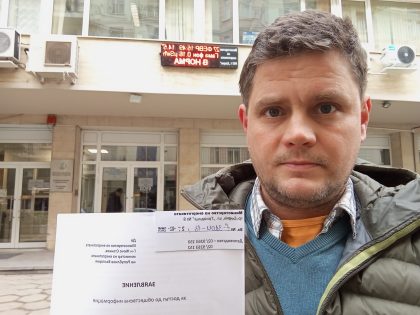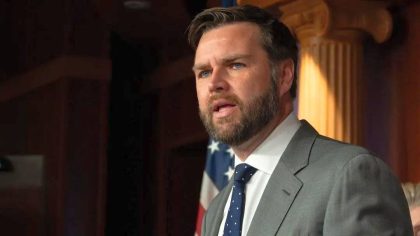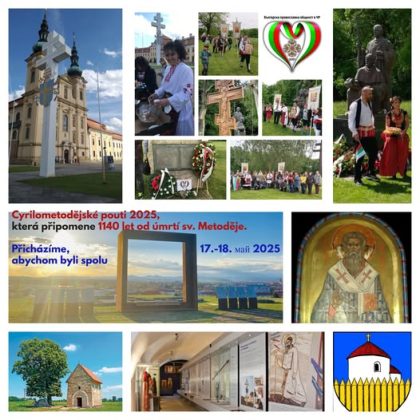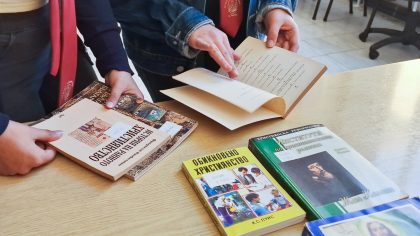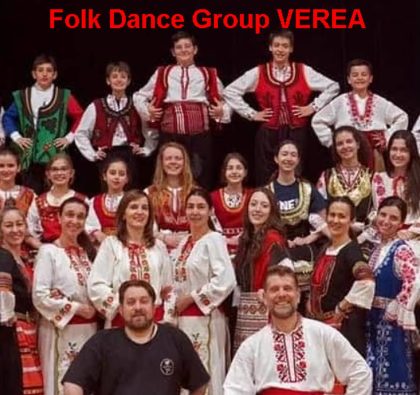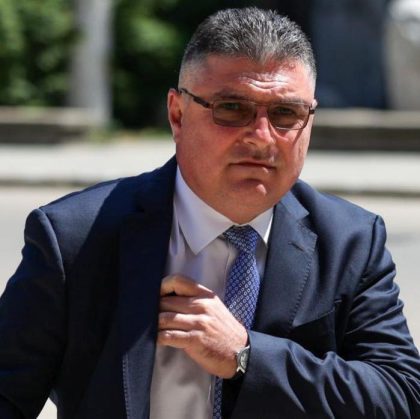Honorable Sir,
I turn to you as the highest authority overseeing the rights of all Bulgarian citizens, their protection from violations of the law and the person guaranteeing harmony in the relations between the State and its citizens. The subject of my letter is the misguided and detrimental for Bulgaria interpretation of “dual citizenship” and the discrimination it generates.
Prior to 1989, only a handful of Bulgarians enjoyed the privilege of possessing red passports – the only way for them to travel abroad. Those who settled for political reasons in the West and, by the force of circumstances obtained foreign identification documents were branded as defectors and traitors. After the fall of the Berlin Wall, the new Bulgarian administration, now set on the path of democracy, restored the passports of these “refugees”. All Bulgarian citizens acquired the right of free travel in Europe. Since then, and at the moment, several waves of emigrants, consisting primarily of young and capable Bulgarians, left the country and settled in Europe, America, and elsewhere. Official estimates list them at 2 million, which equals nearly 30% of the remaining population of Bulgaria. Fuelled by poverty and the lack of perspective for prosperity, the exodus continues. An average of 20 thousand Bulgarians pass through this loophole each year. A significant number of them are young people and college students leaving the country with a one-way ticket. The reasons are said to be economic. Facts, however, indicate they are also political.
Bulgaria is the “black sheep” of the European Union. The country’s political class appears drained and incapable of applying the common European rules and requirements to successfully oppose corruption and organized crime. Following numerous errors in the management of the economy during the 20 years of the transitional period, the national health, education, and court systems, along with farming are in a dilapidated state. The hope for justice and decent life that sprang in 1989 is extinguished today. Many even blame democracy for the hardships. Very few expose its distorted application, based only on make believe. It’s not a secret that political deadlock and lack of alternatives are driving Bulgarians to Terminal 2 of the Sofia Airport. Today, even Bulgarians working in Libya prefer to remain in the war-thorn country, under the bombs, than to return to their impoverished homeland.
Abroad, however, no one is greeting our emigrants with enthusiasm and honors. Employment – even in the European Union, despite the fact Bulgaria is its full-pledged member – often amounts to waiting tables, domestic help, and construction labor. Healthcare, bank credit and an array of other administrative services present enormous difficulties. For this reason, emigrants obtain passports from their new countries of residence all while they keep their Bulgarian citizenship. From that moment on, they lose a number of voting rights, as the current Bulgarian Constitution postulates. However, who is the true looser on this case? Undoubtedly, it is the Bulgarian state which, under the existing law, deprives the Diaspora from a way back, alienates forever emigrants’ children and grandchildren, separates families and depopulates the homeland.
All governments encourage the return of emigrants and even apply effort to attract foreign talent, while Bulgarian legislators create laws which divide the Bulgarian nation, like the recently passed Electoral Code. Voter requirements such as “residency” have nothing to do with the European principle of free travel and residency of their choice for all citizens of the Old Continent (art. 20-25 of EU C). Ms. Eva Joly, native of Norway, announced her candidacy for the French Presidency. None of the 65 million French citizens objected to her dual citizenship, even though she was born in a country which had consistently declined joining the Union. The Prime Minister of Greece, George Papandreou, is also an American citizen. No one in Athens questions his belonging to the Greek nation.
The Bulgarian Constitution, created in the turmoil of the dramatic events during the early 1990s, did not take into account the Euro-integration, or the rapid development of electronic communications, or the freedom of travel, relocation and re-settlement. Moreover, it contradicts itself. According to article 26 of the Constitution of the Republic of Bulgaria, there can be no difference in the rights of Bulgarian citizens, regardless of their place of residency. According to article 10, equal voting rights are one of the basic principles of the Constitution. According to article 35, everyone has the right to choose their place of domicile. According to article 48, all citizens can decide on their place of employment. At the same time, according to articles 65 and 93, only citizens without dual citizenship, who have lived in Bulgaria for the last 5 years, can be elected as Members of the Parliament or run for President. According to this requirement, a number of prominent Bulgarians and individuals of Bulgarian origin, including Tzvetan Todorov, Dilma Roussef, prof. Minko Balkanski, Raina Kabaivanska, prof. Mihail Dihan, Shefket Chapadjiev and many others, less-known, but equally deserving people, could not present themselves before the Bulgarian electorate. Undeniably, in its present form, application and interpretation, the Bulgarian Constitution is a hurdle for a quality selection of the Bulgarian nation. It eliminates from political involvement several generations of Bulgarians – they are, de facto, second-hand citizens, deprived from the right to forge the fate of their country as are their fellow countrymen and relatives. They do not vote for their Members of the National Assembly. They can vote, but they cannot be elected. On the backdrop of the demographic collapse and depopulation of the country, the apathy of the legislature is bewildering and troublesome. Bulgaria had been strong only when it had been united. No one checked the passports of the Mount Shipka Volunteers when they flocked to join the fight for a free and independent Bulgaria.
Living simultaneously in Paris and Sofia, I am the typical, fully-integrated citizen of the European Union. I have Bulgarian and French citizenship. In my professional, personal and public life abroad, the thought for Bulgaria and my fellow countrymen has never left me. That is why I dedicated more than 10 years of my life, personal effort and income to the inquiry in the attempt on the life of Pope John Paul II. Convinced of the injustice of all the blame piled upon my Homeland, in 2007 I managed to publish in Paris the book “The Truth about the Attempt on the Life of Pope John Paul II”. My work, as well as the film based on it, fully exonerated, by documented evidence, our country. The book was entered into the holds of numerous libraries and universities worldwide. I must declare that without French documents of identification, I would have never been able to achieve such results in protecting our national interests. Therefore, I believe that it is time to pose the question “what individuals do with their identification papers,” rather than just keep taking into account the color of their passports cover page. One of the most respected men of the Bulgarian Revival – Georguy Sava Rakovski – also held a French passport. This did not prevent him from becoming the founder of the contemporary Bulgarian army. For this reason, on behalf of all “dual citizens” and their many supporters in our country, I urge you to take an active position in the struggle for the elimination of the petrified and carefully maintained mistrust among our compatriots in the country and abroad.
No matter where we are, we are part of the same people. According to official estimates, in these difficult times for our country, emigrants provide 1.6 billion $ in aid for their relatives, who have remained in Bulgaria, proving their devotion to the homeland. At the same time, the Bulgarian society is deeply uncertain about the essence of its European integration. Those holding foreign passports are, by their nature, not proof of treason of Bulgaria, but of people having equal rights with those in developed western democracies. With their knowledge, family and professional ties, dual citizens are a considerable resource, which, regrettably, remains untapped. Bulgarian legislators hold the responsibility for this unjustified division of our nation. It is time for the Bulgarian Constitution to assume, once again, the role of a social contract between the citizens and the State. Therefore, I am pleading with you for support in the review and the amendment of articles 65 and 93 of the Constitution, in order to align it with European legislation and the real situation of Bulgarian people.
As I am deeply convinced that you share my concern about the future of Bulgaria, I count on your support and assistance in the struggle to unite the Bulgarian nation.
Respectfully, Roumiana Ougartchinska
Paris / Sofia, 25th of May 2011
––––––––––
Feedback, reactions, comments:
http://www.facebook.com/home.php?sk=group_112206925533403&ap=1
and
otvorenopismo@mail.bg ; pismobg@mail.bg

